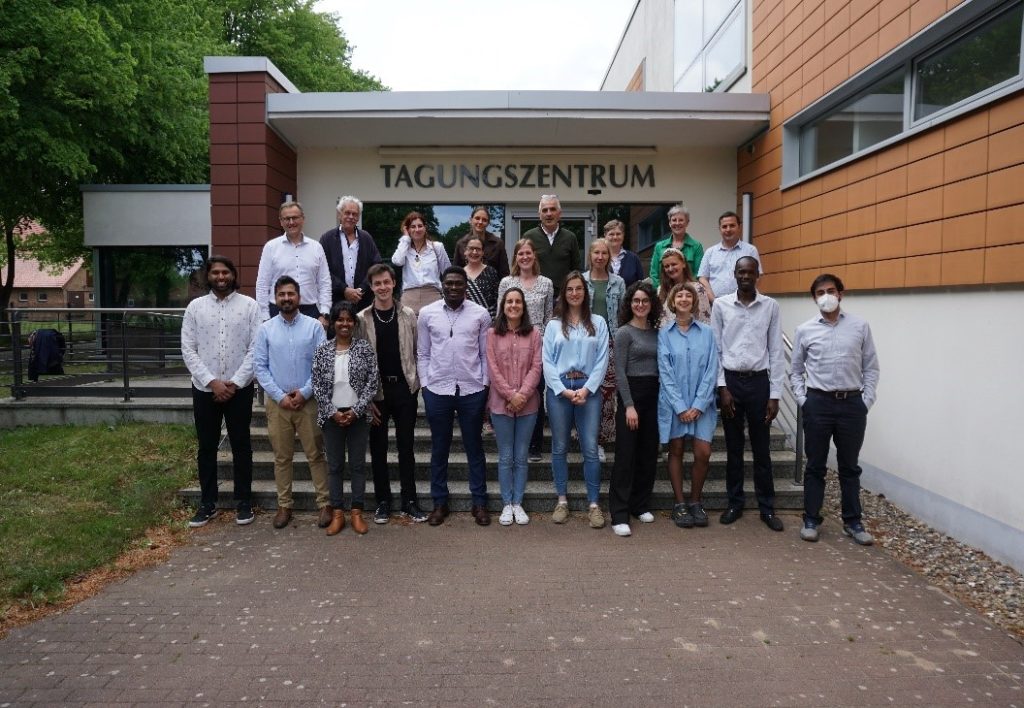ESR blog
The project MonoGutHealth aims not only at gaining more in-depth understanding of the importance of early life animal nutrition and development through projects performed by the 11 early stage researchers (ESRs), but also at offering them training in interdisciplinary research. The ESRs had and continue to have the opportunity to meet in settings other than their everyday workplaces and research institutions. This time they crossed paths in Germany, during the second training school hosted by the Research Institute for Farm Animal Biology (FBN), Dummerstorf.

The training school featured a coursework on Gut Physiology. The ESRs attended lectures on diverse topics such as tools for nutrition and gut research, feed components and their digestibility, RNA seq etc, (visit website for more information). During the course of the program, the ESRs were introduced to a variety of laboratory techniques, such as polymerase chain reactionAn in vitro technique for rapidly synthesizing large quantities of a given DNA segment, and detect g… (PCRAn in vitro technique for rapidly synthesizing large quantities of a given DNA segment, and detect g…), quantitative polymerase chain reactionAn in vitro technique for rapidly synthesizing large quantities of a given DNA segment, and detect g… (qPCR), western blotting, microscopy, high-performance liquid chromatography (HPLCA technique used to separate, identify and quantify components in a mixture; sample in the liquid (m…), and gas chromatography–mass spectrometry (GC–MS). Furthermore, the ESRs were trained and given hands-on experience on gut tissue sampling, parasite diagnosis and gut metabolite detection. Knowledge gained via hands-on experience with a variety of methodologies is extremely beneficial and may be put to immediate use in the ESRs’ individual research projects. Beside laboratory work, we had the chance to visit the pig farm and the other animal research facilities there. This presented us with a great opportunity to increase our knowledge of the pig farming sector in Germany.
The training on soft skills focused on science communication and its importance. During the communication course, the ESRs were introduced to several tips on creating engaging social media posts that could attract wider audience. The ESRs also received training on formal and informal communication and the art of public speaking. The acquired abilities of effective communication and conveying the message to a variety of stakeholders will allow the students to grow in both their personal and professional lives.


Learning art of public speaking and how to communicate effectively
All the ESRs appreciated the opportunity to mingle outside of their host institutions and discuss their experiences, research findings, and PhD journey. We had a pleasure to get together with all the supervisors and trainers at a restaurant in Rostock.


Having wonderful moments at dinner in Rostock
The ESRs presented the progress of their projects to supervisors and other members of the MonoGutHealth consortium during the project meeting. The External Advisory Board selected the best presenters.
The ESRs appreciated the course and trainings on advanced research and soft skills, as well as the project meeting input from experienced researchers.
The next training school in Gut Biology and Health took place at Aarhus University in Viborg and we will write about it very soon!

The Early Stage Researchers (ESRs) and supervisors after a fruitful project meeting